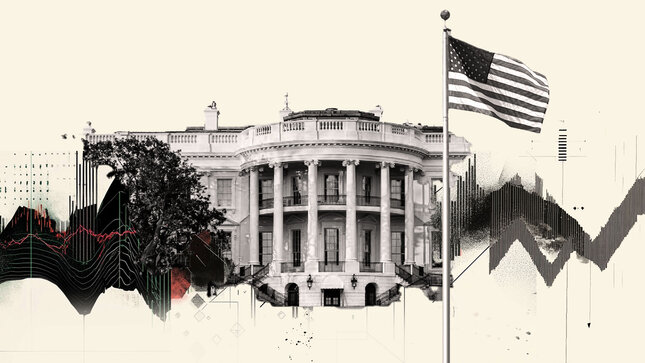In the movie Molly’s Game there is a scene where a seasoned, well disciplined poker player is going heads up against a dilettante that everyone at the table considers to be a rank amateur. This man is known as horrible poker but in this one instance he gets lucky and his hand beats the veteran. The veteran is so shocked by this turn of events that he loses all of his customary discipline and goes on wild reckless, gambling binger, becoming bankrupt by the end of the night.
In poker this behavior is known as going on tilt and if it sounds familiar to anyone who traded that is because virtually the same dynamic happens to anyone who has ever battled with the markets. In trading retail however, going on tilt rarely occurs from bad beats of the market. Almost always it’s the little things that kill you. Things that almost no one imagines have any impact on your success rate, but are actually the most dangerous elements of the game.
Something so mindlessly mundane as your internet connection is one. Imagine you are in a trade and forget to attach a stop and your internet connection goes down. Your trade is now floating naked in the market and by the time you reach your broker you’ve lost four times your intended risk and are now so furious that you start to trade wildly to make it back.
Or imagine your platform freezing up just as prices skyrocket to your target only to unfreeze when prices have fallen through your stop turning what was a brilliant winning trade into an ugly loser.
Or imagine hitting a buy button instead of a sell and compounding that error by also accidentally trading at size 20X your normal entry. What’s your first reaction once you realize the error of your ways? Close out instantly or watch the screen like a deer in headlights hoping that equity turns positive for just a tick? No matter how much you think you’ll do the former, my hunch is that you will always do the latter.
In all of these situations the loss did not result from the setup not working, but because of some utterly extraneous factor that you didn’t even consider. Add to that the regret of being late to an entry or the unbearable desire for some action when the markets are in a lull and you have the perfect recipe for failure in trading.
In the military there is an expression “don’t expect what you don’t inspect” meaning that you should never take for granted that any weapon will work until you actually examine it.
In trading that means creating some very basic failsafe procedures before you even glance at the charts. Make sure you have at least two independent connections to the Internet. Make sure you have your brokers dealing desk number on the speed dial and test that it works. Make sure that all your algo forces you to manually turn it on (the reduction in unforced errors on size and direction will more than offset the tiny slowdown in execution). Create a simple checklist of all the elements you need for your setup entry then create a hotkey script that will quickly type that checklist into Google Word. Check off the list just like a pilot checks off his. This will help you take your trading account as seriously as the pilot takes his job.
The more I trade the more I come to the conclusion that strategy is absolutely the last thing that matters to success in trading. It is all the tiny mundane things that no one tells you that sabotage the best laid plans. Since most of these problems are clerical which means that we can monitor them with a few well chosen pieces of software.
But despite these precautions there will still be many times in the market when the unexpected will clip you. Markets are not like real life. They are far more volatile which is why you should only expose just a fraction of your capital to speculation. That’s the beauty of speculation - leverage allows you to use a small portion of funds to control your position while the rest of your money sits safely in a bank or in sovereign paper. And that is perhaps the most important thing to remember - don’t expose your whole bankroll to the market because no matter how certain you are of winning things can suddenly go sideways faster than you imagine.
Past performance is not indicative of future results. Trading forex carries a high level of risk, and may not be suitable for all investors. The high degree of leverage can work against you as well as for you. Before deciding to trade any such leveraged products, you should carefully consider your investment objectives, level of experience, and risk appetite. The possibility exists that you could sustain a loss of some or all of your initial investment and therefore you should not invest money that you cannot afford to lose. You should be aware of all the risks associated with trading on margin, and seek advice from an independent financial advisor if you have any doubts.
Editors’ Picks

EUR/USD holds near 1.1900 ahead of US data
EUR/USD struggles to build on Monday's gains and fluctuates near 1.1900 on Tuesday. Markets turn cautious, lifting the haven demand for the US Dollar ahead of the release of key US economic data, including Retail Sales and ADP Employment Change 4-week average.

GBP/USD declines toward 1.3650 on renewed USD strength
GBP/USD stays on the back foot and declines to the 1.3650 region on Tuesday. The negative shift seen in risk mood helps the US Dollar (USD) gather strength and makes it difficult for the pair to find a foothold. The immediate focus is now on the US Retail Sales data.

Gold stabilizes above $5,000 ahead of US data
Gold enters a consolidation phase after posting strong gains on Monday but stays above the $5,000 psychological mark and the daily swing low. US Treasury bond yields continue to edge lower on news of Chinese regulators advising financial institutions to curb holdings of US Treasuries, helping XAU/USD hold its its ground.

Bitcoin Cash trades lower, risks dead-cat bounce amid bearish signals
Bitcoin Cash trades in the red below $522 at the time of writing on Tuesday, after multiple rejections at key resistance. BCH’s derivatives and on-chain indicators point to growing bearish sentiment and raise the risk of a dead-cat bounce toward lower support levels.

Dollar drops and stocks rally: The week of reckoning for US economic data
Following a sizeable move lower in US technology Stocks last week, we have witnessed a meaningful recovery unfold. The USD Index is in a concerning position; the monthly price continues to hold the south channel support.
RECOMMENDED LESSONS
Making money in forex is easy if you know how the bankers trade!
I’m often mystified in my educational forex articles why so many traders struggle to make consistent money out of forex trading. The answer has more to do with what they don’t know than what they do know. After working in investment banks for 20 years many of which were as a Chief trader its second knowledge how to extract cash out of the market.
5 Forex News Events You Need To Know
In the fast moving world of currency markets where huge moves can seemingly come from nowhere, it is extremely important for new traders to learn about the various economic indicators and forex news events and releases that shape the markets. Indeed, quickly getting a handle on which data to look out for, what it means, and how to trade it can see new traders quickly become far more profitable and sets up the road to long term success.
Top 10 Chart Patterns Every Trader Should Know
Chart patterns are one of the most effective trading tools for a trader. They are pure price-action, and form on the basis of underlying buying and selling pressure. Chart patterns have a proven track-record, and traders use them to identify continuation or reversal signals, to open positions and identify price targets.
7 Ways to Avoid Forex Scams
The forex industry is recently seeing more and more scams. Here are 7 ways to avoid losing your money in such scams: Forex scams are becoming frequent. Michael Greenberg reports on luxurious expenses, including a submarine bought from the money taken from forex traders. Here’s another report of a forex fraud. So, how can we avoid falling in such forex scams?
What Are the 10 Fatal Mistakes Traders Make
Trading is exciting. Trading is hard. Trading is extremely hard. Some say that it takes more than 10,000 hours to master. Others believe that trading is the way to quick riches. They might be both wrong. What is important to know that no matter how experienced you are, mistakes will be part of the trading process.
The challenge: Timing the market and trader psychology
Successful trading often comes down to timing – entering and exiting trades at the right moments. Yet timing the market is notoriously difficult, largely because human psychology can derail even the best plans. Two powerful emotions in particular – fear and greed – tend to drive trading decisions off course.
